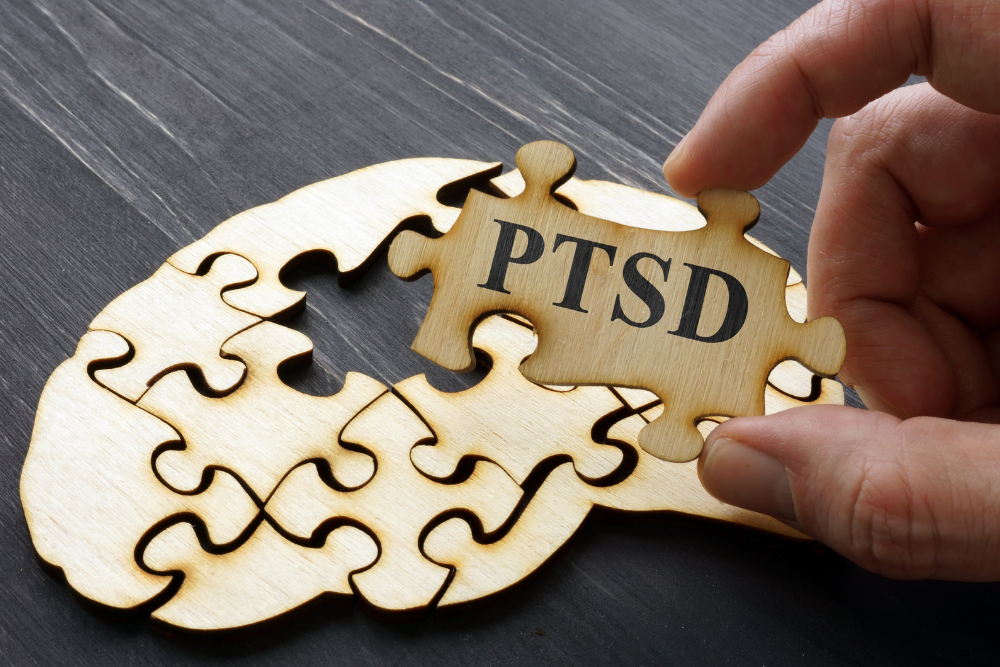Genocide is one of the worst imaginable violations of human rights. Survivors have often witnessed or experienced extreme violence, including the murder of friends and family members. The after-effects of a genocide are often horrific, and can include extreme poverty, homelessness, and the requirement to care for fellow survivors.
One of the most common after-effects is post-traumatic stress disorder (PTSD). Anyone who has experienced emotional trauma or PTSD can suffer from debilitating emotional scars for months, years, or even the rest of their life.
Social Security’s regulations include a listing for “Trauma- and stressor-related disorders.” Per the Social Security Administration’s (SSA) listing:
“These disorders are characterized by experiencing or witnessing a traumatic or stressful event, or learning of a traumatic event occurring to a close family member or close friend, and the psychological aftermath of clinically significant effects on functioning. Symptoms and signs may include, but are not limited to, distressing memories, dreams, and flashbacks related to the trauma or stressor; avoidant behavior; diminished interest or participation in significant activities; persistent negative emotional states (for example, fear, anger) or persistent inability to experience positive emotions (for example, satisfaction, affection); anxiety; irritability; aggression; exaggerated startle response; difficulty concentrating; and sleep disturbance.”
Examples of disorders that SSA evaluates in this category include post-traumatic stress disorder and other specified trauma- and stressor-related disorders (such as adjustment-like disorders with prolonged duration without prolonged duration of stressor).
How Do You Meet This Listing and Qualify for PTSD Benefits?
To satisfy this listing, there must be medical documentation of all of the following:
- Exposure to actual or threatened death, serious injury, or violence;
- Subsequent involuntary re-experiencing of the traumatic event (for example, intrusive memories, dreams, or flashbacks);
- Avoidance of external reminders of the event;
- Disturbance in mood and behavior; and Increases in arousal and reactivity (for example, exaggerated startle response, sleep disturbance).
This must result in extreme limitation of one, or marked limitation of two, of the following areas of mental functioning:
- Ability to understand, remember, or apply information
- Ability to Interact with others
- Ability to concentrate, persist, or maintain pace
- Ability to adapt or manage oneself
Alternatively, your mental disorder in this listing category is “serious and persistent.” This means that you have a medically documented history of the existence of the disorder over a period of at least two years, and that there is evidence of both:
- Medical treatment, mental health therapy, psychosocial support(s), or a highly structured setting(s) that is ongoing and that diminishes the symptoms and signs of your mental disorder;
- and Marginal adjustment (in other words, you have a “minimal” ability to adapt to changes in your environment or to demands that are not already part of your daily life.
Why Should You Seek Out Benefits for Your PTSD?
PTSD is not only a mental illness that manifests with symptoms such as insomnia, depression and anxiety, but actually changes the structure and function of the brain. These changes cause the brain to perform and function differently than it did before the underlying traumatic event.
Sadly, the effects of PTSD can render sufferers unable to work or function at their full capacity. Unsurprisingly, PTSD is widespread in the homeless population, and often prevents homeless individuals from seeking out and maintaining gainful employment.
If you suffer from PTSD because of genocide or other trauma, and it affects your daily functioning, you could be eligible for Social Security disability benefits to help cover your medical costs and living expenses.
Proudly Serving Genocide Survivors
Our practice has represented genocide survivors of the Bosnian War, Cambodian Civil War and the Iran-Iraq.
The Bosnian genocide occurred from 1992-1995, and involved the murder of more than 8,000 Bosniak men and boys, together with the mass expulsions of 25,000-30,000 Bosniak civilians. Many survivors suffered from extreme human rights violations, such as sexual assault, torture, and property theft and destruction.
The Khmer Rouge – Cambodian genocide lasted from 1975-1979. In just over three years, 1.5 to 2 million people were murdered, comprising nearly one quarter of Cambodia’s population! Millions of Cambodians were forced to relocate to labor camps, where mass executions and human rights violations were rampant.
Needless to say, severe PTSD is extremely common in both of these groups. Survivors are often left with significant physical and mental symptoms that severely impair daily functioning.
How Richard I. Feingold & Associates, P.C. Can Help
If you or a loved one is a genocide survivor suffering from PTSD that impairs daily functioning, you could be eligible to apply for Social Security Disability Insurance and/or SSI disability benefites from the social security administration. However, this is a complex, in-depth process, and many common mistakes result in rejected claims.
A disability attorney can help you navigate this often-confusing process to increase your chances of a successful claim. Delegating this time-consuming process to an experienced attorney also allows you to focus on your health, which is the most important priority of all.
You do not have to go through this alone. Get in touch today for help.
Author:
Richard I. Feingold
Richard I. Feingold & Associates, P.C.
Personal Injury & Social Security Disability
Stay Connected:
Sign up for our newsletter
Like us on Facebook
Connect on LinkedIn
Follow us on Twitter







